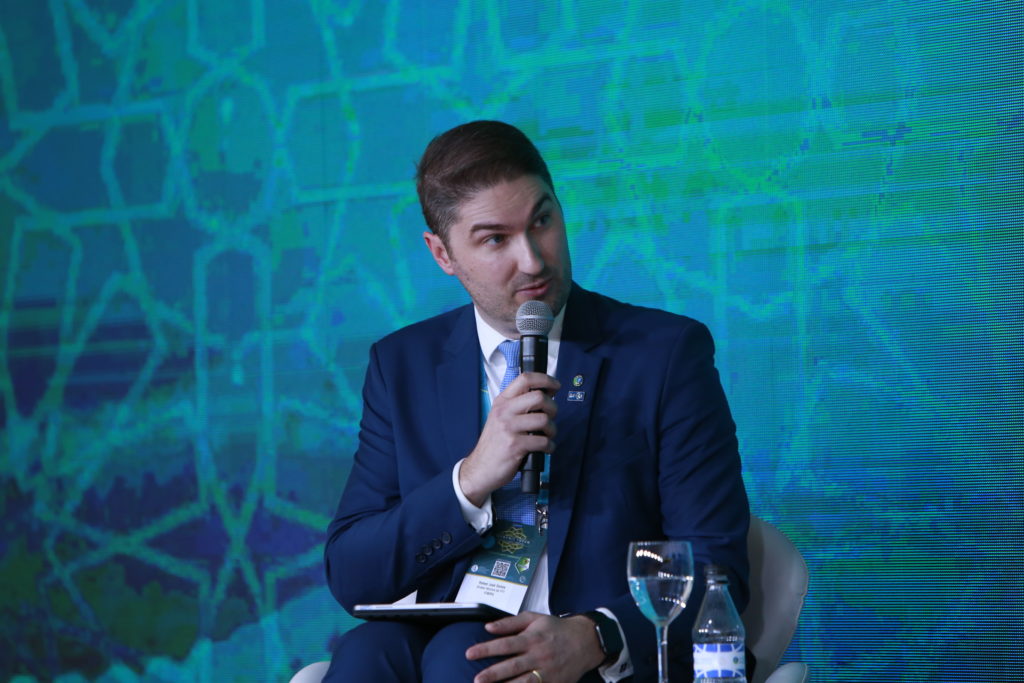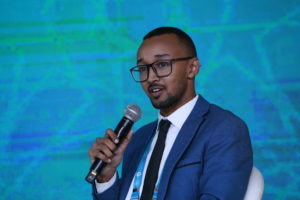
São Paulo – The “Connections that change the world” panel in the Economic Forum Brazil & Arab Countries was moderated by Rafael José Deitos (pictured above), technical director of the Itaipu Technological Park, who defined the theme as a “key point for innovation.” He opened the panel by giving the floor to Sudanese Ahmed Elmurtada from @249Startups to talk about his experience and opportunities for Brazil and Sudan. Ahmed gave an overview of where he lives, the third-largest country in Africa: “We have a lot of mineral resources, livestock, and technology. About 65% of Sudan’s population is under 35, and 6% has bank accounts, meaning there is much room for innovation.” At @249, he said they try to innovate in new digital ecosystems. According to him, Brazil has a lot to offer, for example, in agribusiness. “This knowledge about best practices and expertise can be a bridge between the two countries,” said he, who believes there are several paths for collaboration.
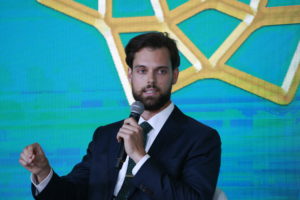
The second panelist was Nicolas Buhmann, Commercial manager of TradeLens, invited to speak on the role of government authorities in innovation ecosystems. He said the company is a platform that allows all participants in the supply chain to exchange data. “Global trade is very complicated, and our ambition is to reduce complexity and costs.” To illustrate, he talked about a study conducted by TradeLens following the journey of a container loaded with avocados from Kenya, in Africa, to Rotterdam, in the Netherlands. He said 40 companies participate in this logistics, “with a lot of paperwork involved.” The platform proposes to help track products with digital documentation. “Having all the information in one place is good for customs. The idea is to use data to facilitate trade,” he said.
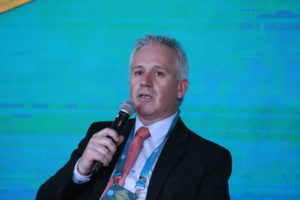
The third speaker was Marcos Bulgarelli, Information Technology director of the Arab Brazilian Chamber of Commerce (ABCC), who was invited to speak about Ellos, a platform integrating data from the entire export chain from Brazil to the 22 Arab countries. “We don’t just want to follow the process; we want to be agents of change.” The project was implemented in 2021 for customs processes with Jordan. “Today, we already export to this country without paperwork, solely with digitalized documents.” Bulgarelli reinforced the connection initiative is part of the ABCC’s mission. One of the new features announced by him is that Ellos is growing and will be used by Arab chambers of commerce around the world. “We want it to be a daily tool for anyone involved in trade, customs clearance, and traceability.” The proposal, according to him, is to create means of exchange between Brazilians and Arabs and start discussing the metaverse.
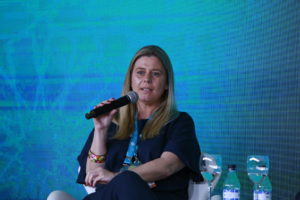
Closing the panel, the moderator took advantage of the metaverse theme, the network of virtual worlds that seeks to reproduce the real world with a focus on social relations, and introduced Roberta Junqueira, director of Operations of Biobots Tec., to discuss the work of the startup established in November last year. She briefly explained her role: “We help companies enter this metaverse world. We work with a content agency bringing these virtual influences to life, and virtual people, to communicate within the metaverse.”
The Economic Forum Brazil & Arab Countries is held by the ABCC in partnership with the Union of Arab Chambers, supported by the League of Arab States and sponsored by Travel Plus, Brazil Trade and Investment Promotion Agency (ApexBrasil), Fambras Halal, Embraer, Itaipu Technology Park, Pantanal Trading, Embratur, Khalifa Industrial Zone Abu Dhabi (KIZAD), Cdial Halal, Modern Living, BRF, Egyzone/Am Development, Antika/Openet BV, First Abu Dhabi Bank, Egyptian Financial & Industrial Co. (EFIC), Suez Company for Fertilizers Production (SCFP), Boa Esperança Agriculture Cooperative (CAPEBE), Prima Foods, and Afrinvest.
Here’s more on the Economic Forum Brazil & Arab Countries.
Translated by Elúsio Brasileiro



